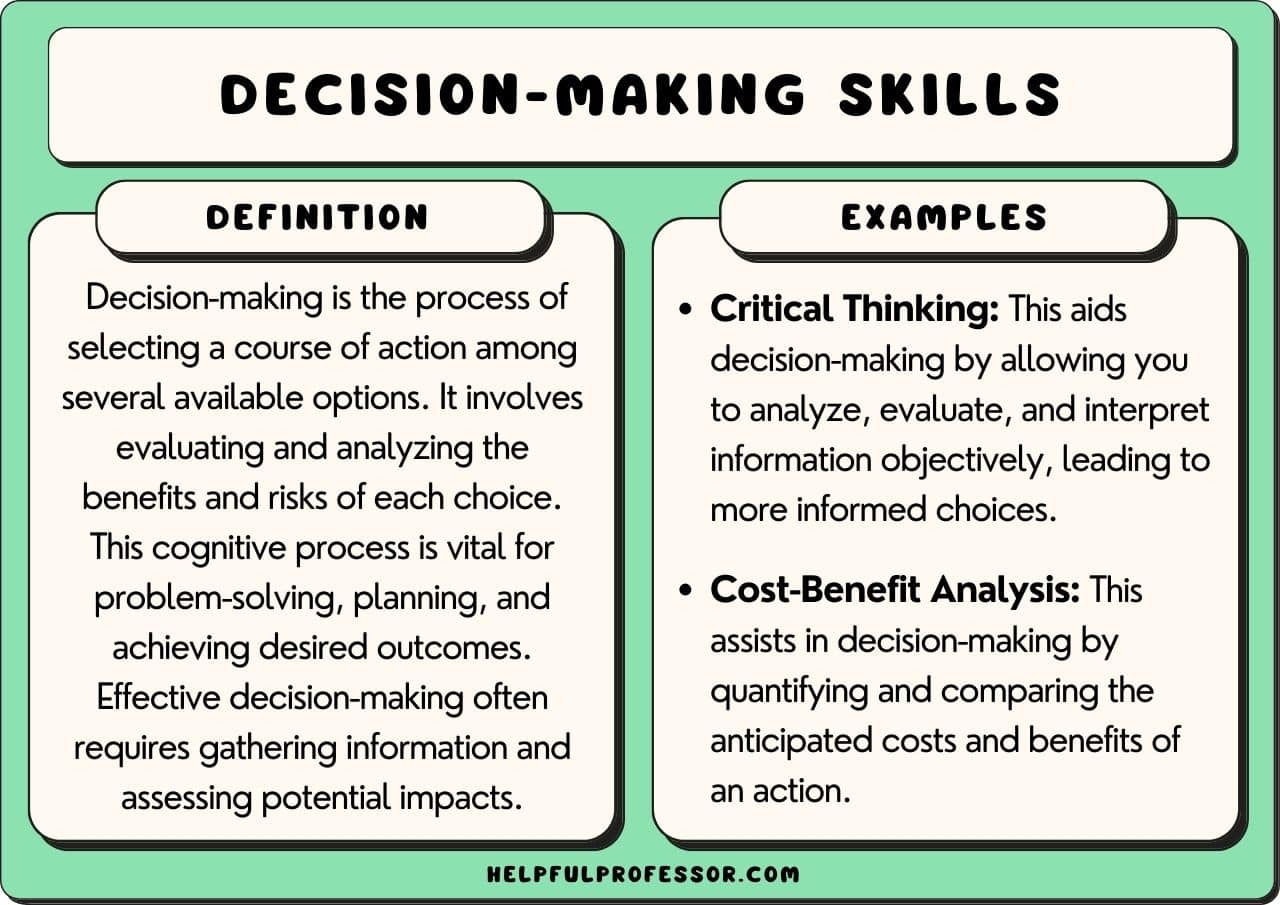

Mastering The Art Of Decision Critical: Navigating Life’s Pivotal Moments
In our fast-paced world, making decisions can often feel overwhelming, especially when the stakes are high. The term "decision critical" refers to those pivotal moments in life where the choices we make can significantly alter our trajectory. Understanding the nuances of decision-making can empower individuals to navigate these critical junctures with confidence and clarity.
Every day, we face countless decisions, from the mundane to the monumental. However, it’s the decision critical moments that demand our utmost attention and thoughtful consideration. These are the instances that can define our careers, relationships, and overall happiness. By honing our decision-making skills, we can learn to approach these choices with a strategic mindset, ensuring that our conclusions align with our long-term goals and values.
Whether it’s a career change, a significant investment, or a personal relationship, recognizing the importance of decision critical moments can lead to more fulfilling outcomes. In this article, we will explore various aspects of decision-making, including techniques to enhance our judgment, the psychology behind our choices, and how to effectively navigate the uncertainty that often accompanies critical decisions.
What Does Decision Critical Mean?
The term "decision critical" encapsulates moments where the decisions we make hold substantial weight, impacting not only our immediate circumstances but also our future paths. Such decisions require thoughtful reflection, careful analysis, and sometimes, a leap of faith. Understanding this concept is the first step toward making informed choices.
Why Are Decision Critical Moments Important?
Recognizing the importance of decision critical moments can empower you to take control of your future. These decisions can shape your personal and professional lives, making it essential to approach them with a clear mind and a structured process. Whether it involves changing careers, relocating, or entering a new relationship, the implications of these choices can be profound.
How Can You Improve Your Decision-Making Skills?
Improving your decision-making skills involves a combination of self-awareness and practical techniques. Here are a few strategies to enhance your ability to make informed decisions:
- Gather Information: Research relevant data to inform your choices.
- Consider Alternatives: Evaluate multiple options before settling on a path.
- Reflect on Past Decisions: Analyze previous choices to learn from successes and mistakes.
- Seek Advice: Consult with trusted friends or mentors for their perspectives.
What Are the Psychological Aspects of Decision Critical Moments?
Decision-making is heavily influenced by psychological factors such as cognitive biases, emotions, and social pressures. Understanding these elements can help you navigate decision critical moments more effectively. For instance, fear of failure may lead to indecision, while overconfidence can result in hasty choices. Recognizing these biases is crucial for making rational decisions.
How Do Emotions Influence Decision Making?
Emotions play a significant role in the decision-making process. They can either cloud judgment or provide valuable insights. Emotional intelligence, the ability to understand and manage emotions, is key to navigating decision critical moments. By being aware of your feelings and how they affect your choices, you can make more balanced decisions.
What Role Does Intuition Play in Decision Critical Situations?
Intuition often serves as a guiding force during decision critical moments. While it’s essential to rely on data and analysis, gut feelings can also provide valuable insights, especially when time is of the essence. Learning to trust your instincts can complement your decision-making process, leading to more holistic choices.
Can Decision-Making Models Help in Decision Critical Situations?
Decision-making models provide structured frameworks that can simplify the decision-making process. By employing models such as SWOT analysis, the decision tree, or cost-benefit analysis, you can systematically evaluate your options and their potential outcomes. These tools can be particularly beneficial during decision critical moments, as they help clarify complex choices.
How to Handle Regret After a Decision Critical Moment?
Experiencing regret after making a significant decision is common. It’s essential to acknowledge these feelings and learn from them rather than dwell on past choices. Reflecting on what you could have done differently can provide valuable insights that will inform your future decisions. Remember that every choice is a learning opportunity.
Conclusion: Embracing Decision Critical Moments
In conclusion, decision critical moments are an inevitable part of life, and mastering the art of decision-making can lead to more fulfilling outcomes. By understanding the importance of these moments, improving your decision-making skills, and navigating the psychological aspects of choice, you can embrace the challenges that come with significant decisions. Remember, each decision you make is a step toward shaping your future, so approach them with confidence and clarity.
Unveiling The Life And Journey Of Jamsheed Dasti
Building Dreams: The Journey Of Guyson Construction Inc
Discovering The Best Furniture Stores In Rockford, IL


